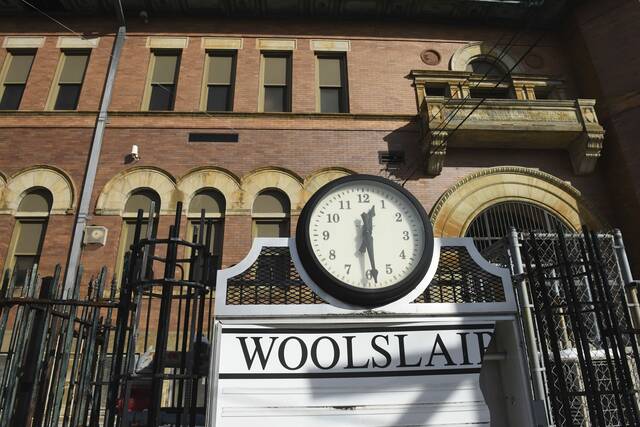https://triblive.com/news/education-classroom/pittsburgh-public-schools-rejects-school-closure-plan/
Pittsburgh Public Schools rejects school closure plan

A reconfiguration plan that called to shutter nine Pittsburgh Public School buildings was defeated by a 6-3 vote Tuesday night.
The “Future-Ready” plan called for the closure of the Student Achievement Center (Baxter School); Friendship; Schiller, Manchester; Fulton; McKelvy (Miller PreK-5); Woolslair; Spring Hill and Morrow.
Grade structures would have been reconfigured at 10 schools, and two new schools would have opened.
Board President Gene Walker and school directors Yael Silk, Devon Taliaferro, Sala Udin, Emma Yourd and Jamie Piotrowski voted against the plan; Sylvia Wilson, Tracey Reed and Dwayne Barker voted for it.
Critics of the plan argued there was not enough clarity or public input for the decisions. Nearly 80 people had spoken against the plan at a hearing Monday.
“I wish that the plan articulated more clearly why it was necessary to create the plan in the first place, and secondly, what the academic benefits will be to the students,” Udin said. “We have done more talking about buildings and building capacity and the number of students per classroom and we have not — the plan has not — articulated exactly how students and families benefit.”
Proponents of the plan argued that it would improve equity and student outcomes across the district. The administration said it proposed the plan because of declining enrollment, aging infrastructure and underutilized buildings.
“This was a plan for them to have something better across the district and not only at a few schools,” Wilson said. “… It was an opportunity to expand what we know is best across the district.”
Next steps unclear
It’s unclear what the next steps are moving forward for the district. Spokeswoman Ebony Pugh didn’t immediately respond to a request for comment Tuesday night.
The board voted down the resolution after two failed attempts to either hold off the vote or only move forward parts of it.
Walker had first suggested tabling the vote, which failed with Piotrowski, Silk, Taliaferro, Udin and Yourd voting against it.
“It’s my personal opinion that we are not in a space where we can properly support the superintendent and his team in this work, and I believe that is what he deserves and we should be able to give it to him,” Walker said on his recommendation to hold off taking a vote Tuesday. “I don’t feel confident that we can at this point, and so I think we should take more time until we can get there.”
When that failed, Silk proposed moving forward with parts of the plan that included: sunset the elementary magnet school program, implement the secondary neighborhood magnet proposal, move the gifted program into home schools, and standardizing grade band reconfigurations for schools. All would be no sooner than the 2027-28 school year.
“This keeps the door open,” Silk said. “If we end up walking away tonight with a ‘no,’ that to me is so much harder to overcome than a ‘Let’s start here,’ which feels like a much more strategic path and a much more respectful path both of what our leadership team has poured into this work and frankly, what we have also heard from the community.”
Solicitor Ira Weiss said Silk’s amendment “is a very difficult way to do things” because it would not be clear what was added or taken out being that the ‘future-ready plan’ is so interconnected.
“I am hesitant to make timeline changes that have drastic effects on our ability to both provide clarity and direction for our community and clarity and direction for the superintendent for a plan that has heavy reliance for the different pieces working together,” Walker said.
Barker, Piotrowski, Reed, Taliaferro, Udin, Wilson and Walker voted against that proposal.
Copyright ©2026— Trib Total Media, LLC (TribLIVE.com)
